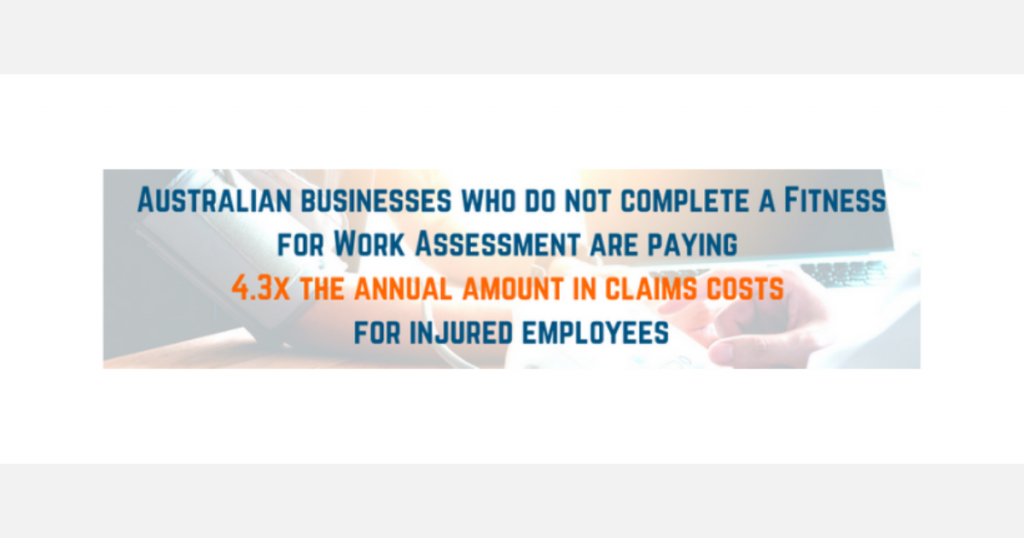“…fitting a square peg into a round hole is not only difficult, but damages either the peg or the hole” (Randolph, 2000).
Doctor provided ‘generic’ medical screens are common and relatively cheap. They usually include an assessment of hearing, eyesight, blood pressure, and a medical questionnaire, typically sourced from voluntary disclosure. But the issue with a ‘generic’ medical assessment is that they have the potential to miss important information, rule someone out unnecessarily, rule someone in who shouldn’t be, or open employers up to possible discrimination.
This is why ‘generic’ is dangerous and can actually be quite costly in the end. If a role does not require a specific function, let’s say overhead lifting, and you rule a good candidate out because they cannot lift their arm over their head, then not only have you missed out on a good candidate, but you may have exposed yourself to discrimination.
Likewise, what if you hired someone to do a physical role and they were carrying a back injury they did not disclose to the doctor, or ‘played it down’. They then aggravate their injury at your workplace, put in a valid workers compensation claim and have to stop work. This would be a disastrous outcome for both you and the employee, who is now injured and unable to work.
So how does a good Fitness for Work Assessment differ?
A good F4W© considers the actual physical and cognitive demands of the role and directly assesses a candidate’s ability to perform those tasks safely.
A good F4W© will be based on a task analysis. This is not a job description – which outlines things such as responsibilities, accountabilities or employment conditions, but rather a detailed account of the movements (like bending, kneeling, lifting), frequency of these (e.g. once/day vs 20/day), and load/force (e.g. push 25kg at waist level) required for the role. For example, the physical work an office worker does is entirely different to that of a plant operator – does it make sense for them to do the same test?
A good F4W© will be conducted by a trained allied health professional, such as an Occupational Therapist, Physiotherapist or Exercise Physiologist with experience in preventing and managing workplace injuries. These professionals understand the impact of injuries on work tasks, are trained to detect muscle weakness, poor techniques, signs of fatigue and strain and identify at-risk persons. Their recommendation is based on evidence-based clinical judgement. They can also offer reasonable and practical suggestions to allow you to engage someone with only moderate risk, such as aids/equipment or manual handling training or job modification.
A good F4W© will protect against discrimination and invasion of privacy. Asking questions or assessing things not related to the role can expose an employer to discrimination if you rule that person out based on those answers. Knowing the right questions to ask is crucial. For example, asking whether someone has had a previous workers compensation claim is fraught with danger – and does it matter anyway? What is more important is whether they can perform the role safely. Likewise, too many personal questions without valid reason can be an invasion of someone’s privacy and simply not relevant.
And long-term, a good F4W© assessment provides a baseline for determining how employees are affected by the work they do in your business. For example, an employer can assess the validity of an employee claiming industrial deafness, when in fact, they had diminished hearing prior to commencing employment.
Evidence shows that employees who are not tested for fitness for work have:

By completing an appropriate F4W© assessments, businesses can help reduce accidents, provide a safer workplace, reduce absenteeism and decrease workers compensation premiums and claims costs.
So, whilst it may seem tempting to take the cheap option, employers should consider whether this really will give you the protection and outcome you need. Or will it cost you much more in the end if you get it wrong?
Find out more about Fitness for Work services available.

